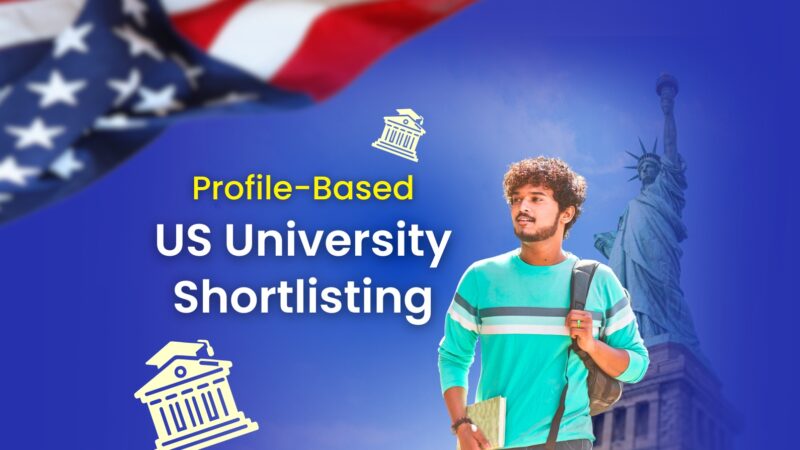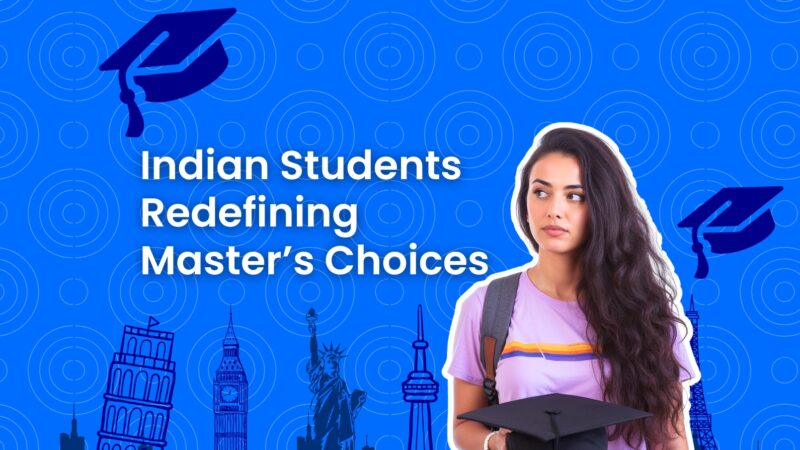
The Student Dilemma: Should I Choose a University Based on Cost or Career ROI?
Choosing a university to study abroad is both thrilling and overwhelming. On one hand, there’s the cost of international education, and on the other, the long-term promise of career return on investment (ROI).
So, what should you prioritise? Let’s explore how to strike the right balance, with practical tips, real-world insights, and tools like a study abroad consultant or a trusted education loan advisor.
What Does “Career ROI” Mean?
ROI (Return on Investment) in this context means: (Lifetime / medium-term earnings – total education cost) ÷ total education cost. You want the university experience to boost your career prospects enough that the gains justify the investment.
Key factors determining ROI:
- Post‑graduation salary: How much you can expect to earn in your field, in the U.S. or globally.
- Employability & network: Strong alumni, campus placement, internships.
- Industry demand: STEM, CS, business analytics often pay higher.
- Time to break even: How many years until your increased earnings recoup your debt + opportunity cost.
- Debt burden: Higher debt reduces net ROI.
Some U.S. universities are renowned for high ROI. For example, top institutions like Stanford, MIT, Harvard, Princeton consistently rank high in “20‑year net ROI” assessments.
Cost vs ROI – Where the Tradeoffs Lie
Many international students face a difficult yet common dilemma: should they choose a university based on how affordable it is, or focus on the long-term career ROI it may offer?
While the cost of studying abroad can be a major barrier, especially without financial aid or a study abroad education loan, choosing a low-cost program doesn’t always guarantee the best outcomes.
When Cost Dominates the Decision
You might lean cost‑first when:
- You or your family have limited financial resources or risk tolerance.
- You can’t secure large scholarships or favorable loan terms.
- You prefer minimizing debt pressure post-graduation.
- You plan to work in a lower-paying field or in locales where salaries are lower.
In such cases, picking a lower-cost public university or state school might be more sustainable.
When ROI Should Be the Priority
You might lean ROI‑first when:
- You are confident of entering a high-paying field (e.g. tech, finance, data, engineering).
- You have or can access resources (loans, scholarships) that lower your net cost.
- You value long-term career momentum over short-term savings.
- You believe the prestige, brand, and network of a high‑ROI institution will open doors that more than offset cost differences.
A Balanced Framework: Cost + ROI Scorecard
Before making a final decision, it helps to approach your options with a structured mindset. A balanced framework allows you to weigh both university costs and potential career ROI side by side, based on factors that truly impact your academic and professional journey.
Here’s a simple scorecard to help you evaluate and compare universities more clearly.
| Factor | Weight (example) | How to Assess |
| Net Cost (after scholarships/loans) | 30% | Calculate your expected out-of-pocket + loan obligations |
| Estimated Salary / Placement | 25% | Look up past grads’ salaries in your field |
| Program Strength / Brand / Network | 20% | Rankings, faculty, alumni strength |
| Internship / Co‑op Opportunities | 15% | Campus tie-ups, location, industry presence |
| Risk Buffer (e.g. fallback plan if things don’t go as expected) | 10% | How safe is the fallback situation? |
How Loans & Study Abroad Consultants Play a Role
To make a well-informed decision, it’s important to understand the support systems available. Both education loans and guidance from a study abroad consultant can significantly influence your ability to afford and maximize the value of your international education.
Here’s how each can help you navigate the cost vs ROI equation.
| Aspect | Role & Benefits |
| Study Abroad Education Loan |
|
| Study Abroad Consultant |
|
Tips to Maximise ROI & Control Costs
It can be possible to maximize your career ROI and spend money you can afford with the proper strategies. The following are the tips that can be applied to make your study abroad experience worthwhile.
- Apply early for scholarships
- Target growth cities & industries
- Choose in-demand skill programs
- Graduate early or fast-track
- Build projects and intern experience
- Negotiate better loan terms
Get Guidance on Student Loans Today
Making the Smart Choice Between Cost and ROI
The importance of the right university is not only prestige but also matching budget to career long-term goals. Establishing a balance between the cost of studying overseas and future career ROI is one of the ways that make your schooling worth your money over the years.
Nomad Credit is here to guide you every step of the way, from finding the right university to securing the best study abroad education loan and expert help from trusted study abroad consultants.

Frequently Asked Questions
How can I find out the average salary after graduating from a specific university?
You can check official university career services reports, LinkedIn alumni data, or platforms like PayScale and Glassdoor to get realistic salary expectations.
Should I consider universities in lesser-known countries to save money?
Yes, if they offer strong programs in your field and international recognition. Cost of living and tuition can be significantly lower.
What are some hidden costs students forget to plan for?
Health insurance, visa renewals, travel during breaks, and course-specific materials (like software or lab fees) are often overlooked.
Is it worth taking a gap year to improve my profile for better ROI universities?
Yes, if you use the time to gain experience, build your profile, or prepare for entrance exams, it can lead to better offers and scholarships.
Will studying abroad limit me to working only in that country?
Not necessarily. Many degrees are globally recognized. With remote work and international opportunities growing, your career can be flexible.
What is the actual cost to study in USA for international students?
The cost to study in USA varies widely depending on the university and location, but international students typically spend between $30,000 to $60,000 per year, including tuition, housing, and living expenses.
How do I compare education loans from different lenders?
Look at interest rates, repayment terms, moratorium periods, co-signer requirements, and total repayment amount, not just the monthly EMI.
Related Blogs
Get Expert Admission Guidance
Helping students worldwide choose top universities and secure their dream admits.








